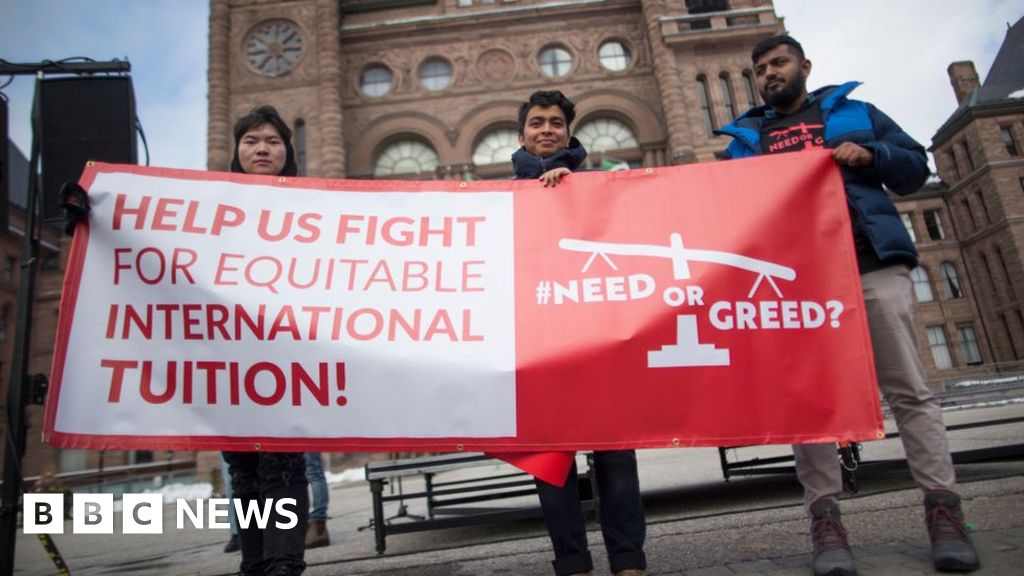Canada has said it will cap the number of foreign students admitted to the country for two years in an attempt to address pressure on housing and healthcare in the country.
The cap will result in a decrease of 35% in approved study permits.
Over 800,000 foreign students were in Canada in 2022, up from 214,000 a decade earlier.
The new measures are also meant to ensure the “integrity” of the system, officials said.
Immigration Minister Marc Miller announced the cap on Monday, saying that Canada aims to approve around 360,000 undergraduate study permits this year.
This is the best summary I could come up with:
Immigration Minister Marc Miller announced the cap on Monday, saying that Canada aims to approve around 360,000 undergraduate study permits this year.
As part of the change, the government will also no longer - as of September - grant work permits for students graduating from colleges that operate under a public-private partnership model, which is most commonly found in the province of Ontario.
While population growth is part of the problem, experts have pointed to other pressures driving down the number of housing starts, including high interest rates that make homes less affordable.
The cap represents a significant shift in policy for Canada, which has historically relied on open immigration to fill job vacancies and address its rapidly-aging workforce.
Mr Miller had previously hinted at reducing the number of international students admitted to Canada, drawing concern from some Canadian universities.
In response to Monday’s announcement, Universities Canada, which represents post-secondary institutions across the country, said it welcomed that the cap is not affecting post-graduate students, but is concerned that it will “add stress on an already-stressed system”.
The original article contains 635 words, the summary contains 177 words. Saved 72%. I’m a bot and I’m open source!
Can’t see how this will do anything but damage their international image.
Where we live it will help a lot. It’s an economically depressed area and has some of the highest poverty rates in the country. Yet the local university has brought so many international students that housing supply dried up prior to COVID. Housing prices have skyrocketed. Food banks are stretched beyond their capabilities. Employment opportunities are at an all time low with a minimum of quadruple the volume of applicants for the few mostly part time positions there are. The local cinema is being used as a classroom there are so many students and no place to instruct them at the university because it is well over capacity on teaching spaces as well as housing. Yet the university keeps increasing the volume of students every single year by the thousands.
This means the local population which already has difficulty for many reasons is seeing homelessness rise dramatically along with food insecurity, housing prices rising at extreme rates, joblessness at extreme levels even for a historically depressed area. Not to mention a huge increase in crime.
For smaller population centers and those with schools acting as diploma mills, which is happening in many areas here, it will slow down the decline somewhat. It’s not an end all situation. Much more still has to be done to even try right the ship.
Thanks for your viewpoint.



